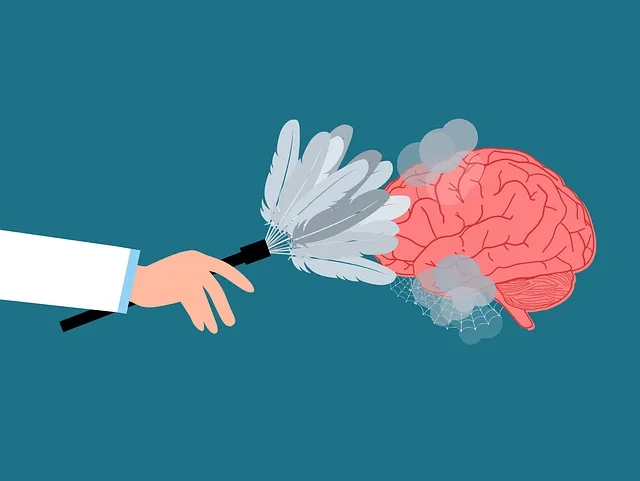Community outreach programs like those of Kaiser Permanente in Boulder, offering confidential psychiatric phone services and mental wellness podcasts, directly address local healthcare needs. Through partnerships, workshops, and open dialogues, these initiatives promote mental well-being by fostering trust, cultural sensitivity, and access to resources. Measuring success via KPIs and participant feedback ensures tailored, effective services that empower individuals to manage their emotional health within Boulder's diverse community.
Community outreach programs play a vital role in addressing mental health disparities. This article explores strategies for successful implementation, drawing on the example of Kaiser Permanente’s psychiatric services in Boulder. We’ll discuss key considerations like understanding community needs, effective planning, and collaboration with local groups. Additionally, we’ll delve into measuring impact, highlighting the importance of tracking outcomes to ensure resources are allocated efficiently, particularly when utilizing resources like the Kaiser Permanente psychiatry phone number Boulder offers.
- Understanding Community Outreach Programs
- Kaiser Permanente Psychiatry Phone Number Boulder: A Resource
- Planning Effective Mental Health Initiatives
- Engaging Local Communities Through Collaboration
- Measuring Success and Impact of Outreach Efforts
Understanding Community Outreach Programs

Community outreach programs are initiatives designed to connect healthcare services directly with communities in need. They bridge the gap between medical expertise and individuals or groups who might otherwise face barriers to accessing care, such as those living in underserved areas or facing socioeconomic challenges. These programs can take various forms, including health fairs, educational workshops, and mental wellness resources tailored to specific community needs.
For instance, organizations like Kaiser Permanente have incorporated innovative strategies, such as a Mental Wellness Podcast Series Production, to engage communities. By providing accessible information and support, these initiatives foster better mental health awareness and reduce stigma. In Boulder, Colorado, for example, their community outreach efforts target burnout prevention strategies for healthcare providers, recognizing the importance of both physical and mental wellness among medical professionals. This holistic approach ensures that communities receive comprehensive care while addressing the well-being of those who serve them.
Kaiser Permanente Psychiatry Phone Number Boulder: A Resource

In Boulder, Colorado, the Kaiser Permanente Psychiatry Phone Number serves as a vital resource for individuals seeking mental health support. This dedicated line offers a confidential space for people to connect with experienced psychiatrists who can provide guidance and treatment options. The service is particularly beneficial for those who may feel hesitant to step into a physical clinic, offering a convenient and accessible approach to care. Through this phone number, Kaiser Permanente aims to bridge the gap between patients and specialized psychiatry services, ensuring that residents have easy access to professional support.
Effective communication strategies, such as active listening and empathetic conversation, are at the core of this resource. Moreover, compassion cultivation practices can foster a sense of security and understanding, encouraging individuals to open up about their challenges. By combining these approaches with confidence-boosting techniques, Kaiser Permanente Psychiatry Phone Number Boulder empowers residents to take charge of their mental well-being.
Planning Effective Mental Health Initiatives

Community outreach programs play a vital role in promoting mental well-being, especially when tailored to specific needs. When implementing initiatives for better mental health, it’s crucial to involve local communities and seek professional guidance from organizations like Kaiser Permanente. The Boulder area, for instance, can benefit from partnerships with healthcare providers who offer psychiatric services, such as the Kaiser Permanente psychiatry phone number Boulder residents can access.
Effective strategies might include promoting positive thinking through workshops, encouraging mindfulness meditation practices, and teaching mind over matter principles. These initiatives should be community-driven, ensuring cultural sensitivity and relevance. By fostering open dialogues about mental health, breaking down stigma, and providing accessible resources, such as counseling services or peer support groups, communities can create a supportive environment where individuals feel empowered to take charge of their mental well-being.
Engaging Local Communities Through Collaboration

Engaging local communities is a cornerstone of successful community outreach programs, especially when addressing mental health issues in Boulder, as exemplified by Kaiser Permanente psychiatry phone number initiatives. Collaboration between healthcare providers, local organizations, and community members fosters trust and ensures that programs are tailored to meet specific needs. By bringing together diverse stakeholders, these partnerships can enhance access to services and promote better mental health outcomes.
For instance, designing Mental Health Education Programs that incorporate Resilience Building techniques or Mindfulness Meditation sessions has shown promising results in fostering coping mechanisms within communities. Such collaborative efforts not only educate individuals but also create a supportive environment where people feel empowered to take charge of their mental well-being. This community-driven approach is key to achieving sustainable improvements in public health, particularly when focusing on programs that cater to the unique cultural and social fabric of Boulder.
Measuring Success and Impact of Outreach Efforts

Measuring the success and impact of community outreach efforts is a critical aspect of evaluating the effectiveness of programs aimed at improving mental health. Organizations like Kaiser Permanente, with their psychiatry phone numbers readily available in Boulder, can track key performance indicators (KPIs) to gauge the reach and outcomes of their initiatives. These metrics might include the number of individuals served, the types of services accessed (e.g., counseling, support groups), and changes in emotional intelligence or inner strength development over time. By collecting such data, they can identify what works best and make informed decisions about resource allocation.
Furthermore, qualitative feedback from participants is invaluable. Programs that offer Trauma Support Services, for instance, should encourage open dialogue to understand the impact on individuals’ lives. This feedback loop ensures that outreach efforts are not just reaching people but also making a tangible difference in their emotional well-being. It allows for continuous improvement and adaptation, ensuring the services remain relevant and effective in addressing the community’s evolving mental health needs.
Community outreach programs, such as those offered by Kaiser Permanente Psychiatry in Boulder, play a pivotal role in enhancing mental health services accessibility. By understanding community needs, planning initiatives with collaboration in mind, and measuring impact, organizations like Kaiser Permanente can effectively address mental health disparities. The success of these programs not only lies in the resources provided but also in fostering strong partnerships within local communities. Engaging and empowering folks through accessible phone resources like the Kaiser Permanente Psychiatry line in Boulder ensures that support is available when and where it’s needed most, ultimately contributing to a healthier, more resilient community.






